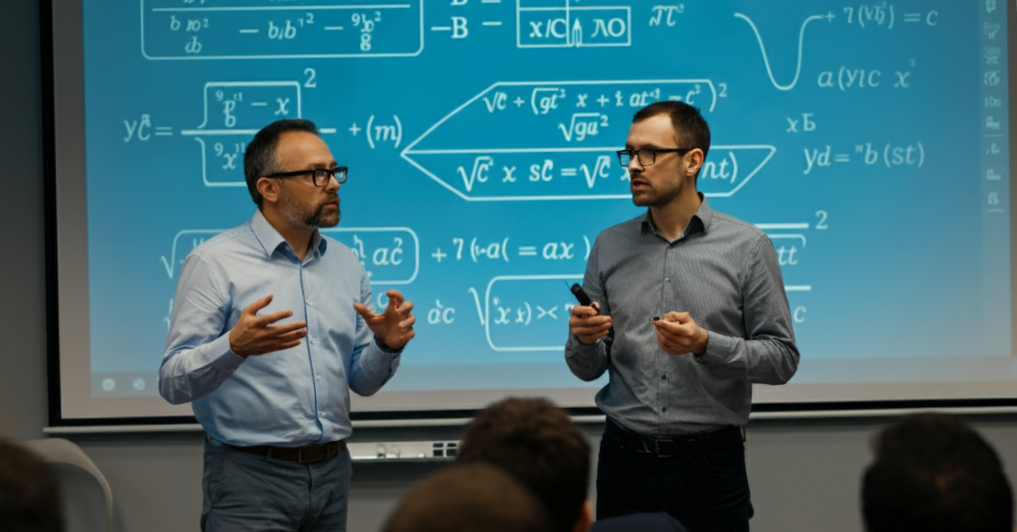Reflecting on my recent experience at Support Vectors AI Labs, I am inspired to highlight the unique strengths that physicists and mathematicians bring to AI training. My course work on "Neural Network Architectures" and "LLM Bootcamp", led by Asif Qamar and Chandar Lakshminarayan —both with PhD in Theoretical Particle Physics along with advanced degrees in Computer Science—made me realize how their unique perspective goes beyond coding. They taught not just the “How” of AI, but the “Why,” building a foundation for true mastery of AI concepts.
In AI, where Neural Networks and Large Language Models (LLMs) dominate, the field’s core lies in mathematical theories like linear algebra, calculus, and probability. This foundation requires skills in abstract thinking and model-building that physicists and mathematicians excel at. Unlike typical coding courses, physics PhDs undergo years of training in understanding complex systems and identifying patterns within vast datasets—skills that directly translate into building and optimizing AI models.
The Deeper Foundations of AI
Asif Qamar and Chandar Lakshminarayan have made me realize that Physicists and Mathematicians bring more than just programming skills to AI. Their training provides an unparalleled intuitive understanding of theoretical principles, enabling them to break down complex models into core elements. At SupportVectors AI Labs, this depth of knowledge is taught through lab-based courses that combine rigorous theory with real-world applications. For instance, understanding how information flows through neural networks involves not only structuring layers and adjusting weights but also applying concepts from differential equations and statistical mechanics in choosing the right Activation Function, Loss Function, Optimizer etc. (stay tuned for my detailed article that combines all these concepts).
This theoretical depth is more than academic; it’s practical. By understanding the mathematics behind algorithms, students learn to approach problems creatively, not just by replicating existing solutions. Training with physicists and mathematicians prepares students to design new models suited to specific challenges, equipping them to be innovators, not just implementers.
Teaching First-Principles Thinking
One of the most valuable skills physicists bring to AI is first-principles thinking. In my courses with Asif Qamar and Chandar Lakshminarayan, they emphasized questioning assumptions and diving into foundational concepts. This approach enables students to understand the mechanics behind AI tools, making them adaptable and innovative in the face of evolving technology.
For example, models like Generative Adversarial Networks (GANs) or Variational Auto Encoders (VAE) require an understanding of probability distributions and optimization techniques. By teaching the theories that underpin these structures, physicists help students go beyond surface-level code and understand the systems driving the technology.
A Unique Advantage at Support Vectors AI Labs
SupportVectors AI Labs exemplifies this unique approach, combining the theoretical rigor of particle physics with hands-on, practical learning. Led by experts like Asif and Chandar, the institute’s training programs go beyond coding. With GPU-powered AI servers and dedicated teaching assistants, students experience an environment where theory meets practice. This high-touch training has led to impressive results: a 100% course completion rate and over 1,500 professionals trained. In addition, SupportVectors AI Labs offers personalized 1x1 guidance through the top notch AI engineers who serve as teaching assistants - Kayalvizhi Thirumavalavan Masoom Rahi Ravi Sati Shreya Shetye Akshaya Nadathur Patrish K. Kate Amon
Physicists & Mathematicians in an 'AI Center of Excellence'
At a time when AI professionals are in high demand, physicists and mathematicians stand out as instructors who can provide a holistic understanding of AI and guide your AI projects to be successful. Their ability to think abstractly, combined with analytical rigor, prepares students to tackle real-world AI applications and develop innovative solutions.
For individuals and organizations aiming to excel in the AI space, having experts with backgrounds in physics and mathematics as part of their "AI Center of Excellence" offers a significant advantage. It’s not just about coding skills; it’s about mastering the principles that make AI powerful and impactful.



